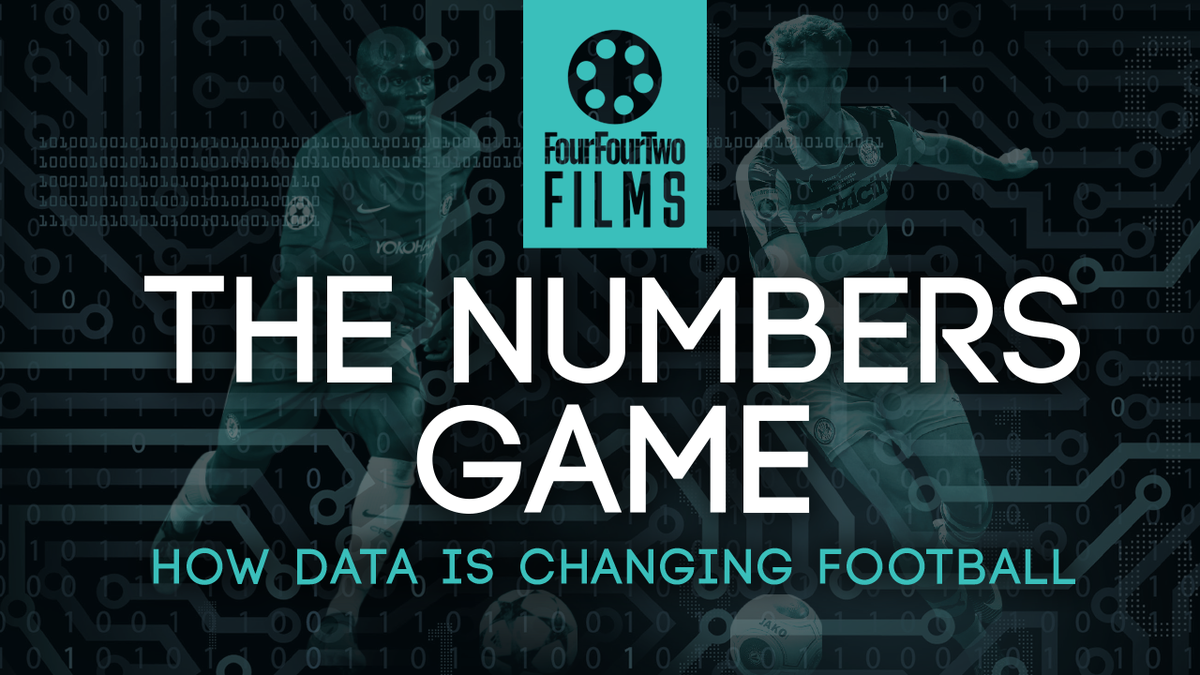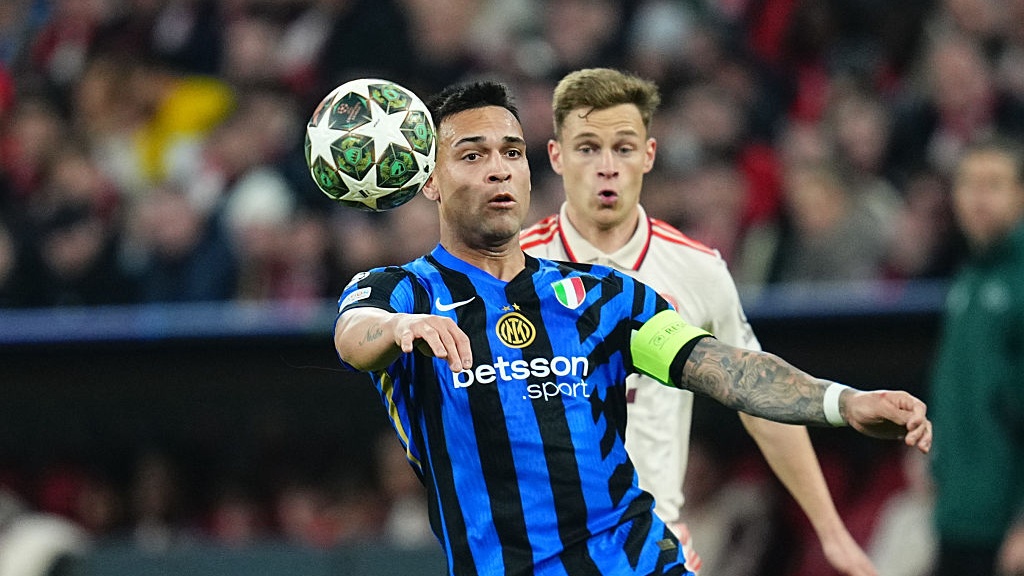FourFourTwo with Billy Beane: Can the Moneyball analytics approach work in football?
The man who pioneered data-driven success in baseball talks about how analytics is changing football – and why, love them or hate them, the numbers aren’t going away

A new FourFourTwo Film – The Numbers Game: How Data is Changing Football – investigates the changing way information is being used in the sport. As part of it, FFT sat down with Billy Beane, the man whose success in baseball was partly due to a deep and forensic analysis of different types of data (and he's a subscriber to our mag, no less – a man with taste, y'see).
That led to a book, Moneyball, being written about his methods, which was then turned into a film where he was played by Brad Pitt. Even Pep Guardiola can’t boast that (yet).
Beane also has a very keen, long-standing interest in football – and is part of a consortium that purchased Championship club Barnsley this month. So nobody better person to talk to about how statistics are shaping the future of the game...
Can you explain how your approach with the Oakland A's changed your sport?
“The implication of it really came as a result of the club that we were running. I mean, there are 30 baseball teams so it’s similar to a European football league. Manchester United and Burnley are very different clubs, despite the fact that they play in the same league, and as a result Burnley have to take a very different approach to putting together a team than Manchester United.
“For us, that meant that if we just did things the same way as the New York Yankees, like Manchester United do, we were destined to finish where the player wages said we should. If you had the lowest payroll, you were probably going to finish in last. So we had the opportunity, because we had nothing to lose, to implement something different and that’s really where it started first.”
We had immediate success. But the biggest thing, the important thing, was we understood why we were successful
What success did have you with your approach to this?
Get FourFourTwo Newsletter
The best features, fun and footballing quizzes, straight to your inbox every week.
“From 2000 to 2003, we had the most successful run in this team’s history. We won three division titles and a wildcard place… so we had immediate success. But the biggest thing, the important thing, was that we understood why we were successful and we understood where we went wrong, because the numbers would show us that.
“So there wasn’t a mystery as to why something did or didn’t work. It was a process and we were more interested in the process of creating results, as opposed to just taking results and hoping the next time. Again, it was a very structured and analytic process that allowed us to look back and understand where we went wrong and why we were successful. So it was a road map to some extent.
“We wanted to take our gut instinct out of the decision-making. Our experience during the game has to impact how we viewed an event, because emotions are very much part of how people view events, and we felt that data and numbers took that emotion out.”
Do you find it a bit crazy that you have teams in different sports that now try to do what you did with the Oakland A's?
”It’s humbling, it’s flattering for me and it’s exciting – because I’m a massive fan of European football particularly – to see the best in the world [do this]. It gets me a couple of free trips to England, so again I’m flattered and hope that continues!”
Was the film the moment when football clubs and other sports teams started to take notice?
“Yes, I think that certainly broadcast it, because Hollywood has an amazing way of reaching people all over the world - but it started before then. I know when the book came out I really started to get a lot of contact from individuals who were interested in using some of this approach in football, although it was certainly not to the level of the film.
“The film goes beyond sports executives, because with a film you can play it in France, you can play it in Latvia, you can play it in the UK – particularly if Brad Pitt is in it. The book gave us a lot of exposure to certain executives, but not necessarily to the mass and the film did because Hollywood has a way of doing that.”

Have you experienced any resistance or scepticism from teams?
“We weren’t interested in convincing people, we didn’t care if someone believed in what we were doing or not. Quite frankly it was to our advantage that nobody did [believe in our methods]. That’s not the case in baseball now – essentially every team in Major League Baseball has an analytics departments. I wasn’t trying to preach to anybody. If you ask me a question, I’ll give you my honest answer. If you don’t believe me, that’s your right.
“But if you go forward from when I first started over there, I would say – and I’ll use the term 'analytics', but the use of data and putting together a sports team – it’s further along now than when I first went there. The genie is out of the bottle and I don’t think it’s going back in.”
What are the challenges of using analytics in football?
“It’s a very dynamic sport. Baseball is very stop-start and it lends itself to measurement, but on the flip side there are a lot more events going on during a football match than there are in a baseball game - and anybody who is well versed in modelling, whether from a computer science background or a mathematics background, will tell you the more data you have, the better you are able to put the models together.
“So it may be different and there’s certainly a correlation of an interaction between players that may not exist in baseball – but there are a lot of events, and the more events you have the better you should be at predicting things.”
Watch The Numbers Game: How Data is Changing Football now
Alex Reid is a freelance journalist and the former digital features editor at FourFourTwo. He has also written for the Guardian, talkSPORT, Boxing News and Sport magazine. Like most Londoners, he is a lifelong supporter of Aberdeen FC. He is deceptively bad in the air for a big man. He has never been a cage fighter.

